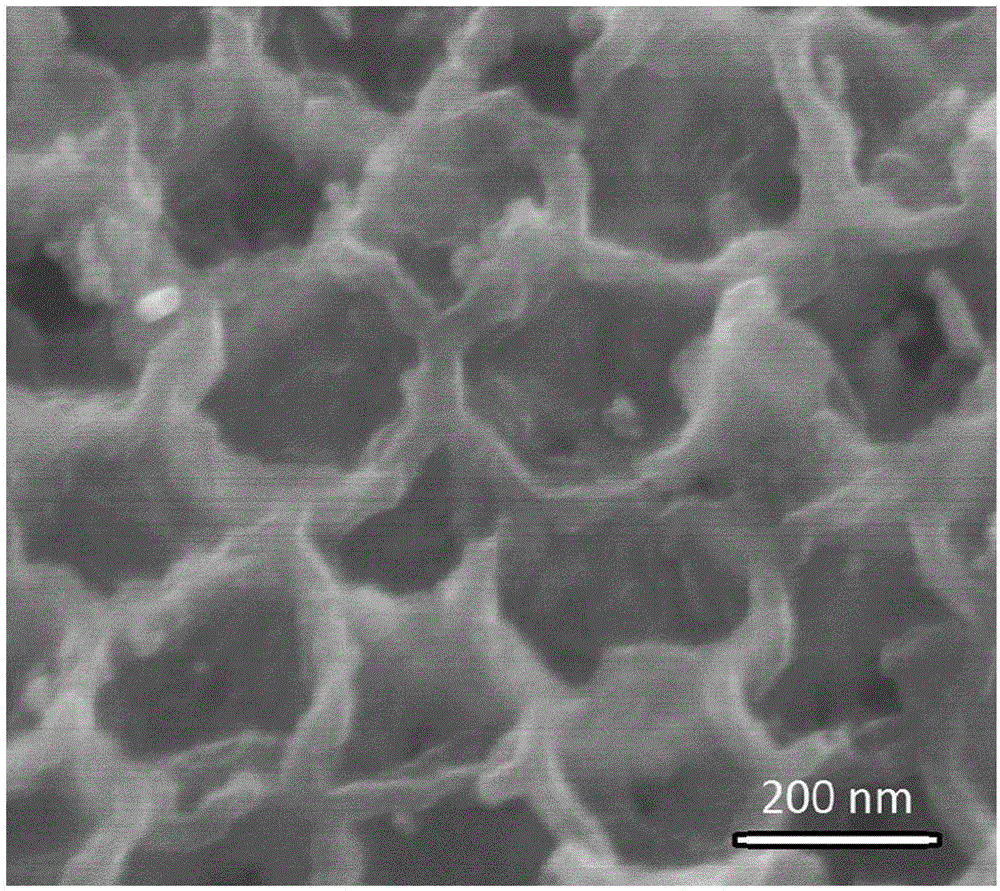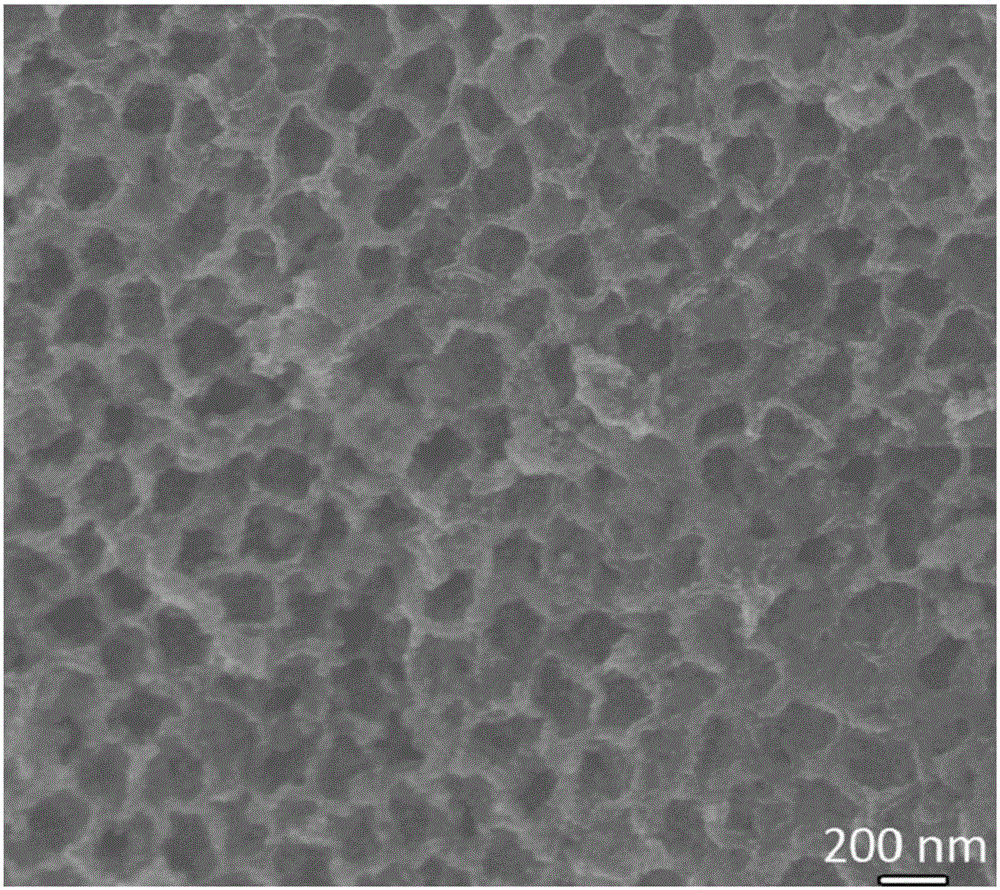Synthetic method of material with palladium particles loaded on three-dimensional macroporous molybdenum dioxide
A three-dimensional macroporous, molybdenum dioxide technology, applied in chemical instruments and methods, metal/metal oxide/metal hydroxide catalysts, chemical/physical processes, etc., can solve problems such as plastic deformation and performance degradation, and achieve current Increased density, improved catalytic performance, and shorter time-consuming effects
- Summary
- Abstract
- Description
- Claims
- Application Information
AI Technical Summary
Problems solved by technology
Method used
Image
Examples
Embodiment 1
[0022] Take 2g of the template and put it into 10ml of 0.05M MoCl 5 Put the beaker into a 50°C incubator, seal the beaker to prevent the volatilization of water, and oxidize the solution in about two days, filter it several times and dry it to obtain a blue solid. Put this solid in a crucible and put it into a heating furnace that can pass through a protective atmosphere, heat treatment for 2 hours from 20°C to 650°C under the protection of flowing argon atmosphere, and the heating rate is 5°C / min, and then cool with the furnace to obtain Three-dimensional macroporous MoO with a pore size of 200 nm 2 .
[0023] Obtained MoO 2 Put 20 mg into 20 ml of water, hydrochloric acid, stannous chloride (mass ratio is 20:1:0.1) mixed suspension, hydrochloric acid is 1mol / L hydrogen chloride aqueous solution, stir with a magnetic stirrer for 30 minutes, centrifuge to get the precipitate thing. Put the precipitate into PdCl 2 Solution (10mL water, 0.5g PdCl 2 ), stirred with a magne...
Embodiment 2
[0025]Take 2g of the template and put it into 10ml of 0.05M MoCl 5 Put the beaker into a 50°C incubator, seal the beaker to prevent the volatilization of water, and oxidize the solution in about two days, filter it several times and dry it to obtain a blue solid. Put this solid in a crucible and put it into a heating furnace that can pass through a protective atmosphere, and heat it from 25°C to 640°C for 1.5 hours under the protection of a flowing argon atmosphere, and the heating rate is about 8°C / min. After cooling in the furnace, a three-dimensional macroporous MoO with a pore size of 350 nm was obtained. 2 .
[0026] Obtained MoO 2 Put 20 mg into 20 ml of water, hydrochloric acid, and a mixed suspension with a submass ratio of chloride (20:1:0.1), the hydrochloric acid is 3mol / L hydrogen chloride aqueous solution, and the precipitate is put into PdCl 2 Solution (10mL water, 0.5g PdCl 2 ), stirred with a magnetic stirrer for 30 minutes, centrifuged to take the precipi...
Embodiment 3
[0028] Take 2g of the template and put it into 10ml of 0.05M MoCl 5 Put the beaker into a 50°C incubator, seal the beaker to prevent the volatilization of water, and oxidize the solution in about two days, filter it several times and dry it to obtain a blue solid. Put this solid in a crucible and put it into a heating furnace that can pass through a protective atmosphere, and heat it from 22°C to 645°C for 2 hours under the protection of a flowing argon atmosphere, and the heating rate is about 8°C / min. After cooling in the furnace, a three-dimensional macroporous MoO with a pore size of 400 nm was obtained. 2 .
[0029] Obtained MoO 2 Put 20 mg into 20 ml of water, hydrochloric acid, stannous chloride (mass ratio is 20:1:0.1) mixed suspension, hydrochloric acid is 5mol / L hydrogen chloride aqueous solution, stir with a magnetic stirrer for 30 minutes, centrifuge to get the precipitate things. Put the precipitate into PdCl 2 Solution (10mL water, 0.5g PdCl 2 ), stirred w...
PUM
| Property | Measurement | Unit |
|---|---|---|
| pore size | aaaaa | aaaaa |
| pore size | aaaaa | aaaaa |
Abstract
Description
Claims
Application Information
 Login to View More
Login to View More - R&D
- Intellectual Property
- Life Sciences
- Materials
- Tech Scout
- Unparalleled Data Quality
- Higher Quality Content
- 60% Fewer Hallucinations
Browse by: Latest US Patents, China's latest patents, Technical Efficacy Thesaurus, Application Domain, Technology Topic, Popular Technical Reports.
© 2025 PatSnap. All rights reserved.Legal|Privacy policy|Modern Slavery Act Transparency Statement|Sitemap|About US| Contact US: help@patsnap.com



